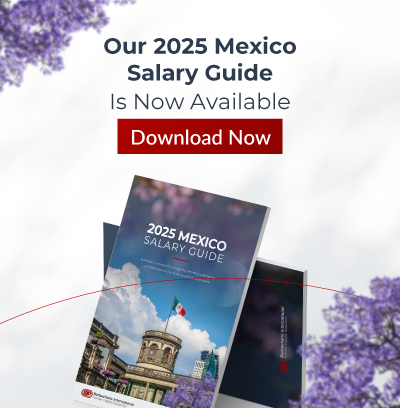
As an executive search firm, one of the most critical components of our job is finding the best possible candidates for our clients. This process involves a thorough evaluation of a candidate’s qualifications, experience, and fit with the company culture. However, there is one step in the hiring process that is often overlooked but can have a significant impact on the outcome: the reference check.
At its core, a reference check is a process of verifying a candidate’s employment history and evaluating their performance, work ethic, and character. It helps gain insight into the candidate’s past performance and potential fit with the hiring company. Despite the clear benefits of reference checks, many companies do not conduct them thoroughly or at all, leading to costly hiring mistakes.
According to the Society for Human Resource Management (SHRM), 80 percent of HR personnel consistently conduct reference checks before filling key positions in their companies. Some people (the other 20%) may not see the value in the practice because they believe that since prospective employees are the ones who provide the reference sources, the bias is already in their favor. If that’s the case, the 20% argues, then why bother?
Why Bother?
Checking candidate references is still a sound and appropriate practice for the following reasons.
Explains Job Hopping
Employers used to frown upon job hopping and consider it a red flag and a resume weakness, but moving around a bit from one career post to another is becoming increasingly common. Furthermore, many professionals do it for good reasons such as to procure a higher salary, seek career advancements, find a better work environment, and/or take the opportunity to expand their skills. Background checks are important to help employers understand their prospects’ employment history and keep them from making unwarranted inferences about “jumpers.”
Validates Given Information
This may come as a shock to you, but not all candidates are 100% forthcoming about their previous employment. A few may choose to withhold pertinent information, and others (hopefully even fewer) might falsify their work history to pad their resumes. Thorough reference checks are a good way to mitigate this risk.
Prevents Costly Hiring Mistakes
You may learn something during reference checks that indicates particular candidates aren’t the right fit for a position, which doesn’t mean anything is wrong with them or that they’re bad people. For instance, perhaps you learn that your candidate is highly analytical and methodical (great qualities), but your organization moves at blistering speeds and requires someone who acts quickly and decisively … or vice-versa. Hiring the wrong people for the job can cost at least 30 percent of employees’ annual earnings when you have to replace them, so learn everything you reasonably can about their work style/ethic through reference checks before you hire them.
Best Practices (Do’s)
Now that you know why you should conduct reference checks, let’s talk about how. Following are best practices that will optimize your time and make sure you get useful, actionable information out of your reference checks.
Do Frontload
Have your candidates do the frontloading legwork for you. Ask them to reach out to the references first to let them know you’ll be calling, and make sure they’ve provided you with current, correct contact information. Where possible, you could even have them set appointment times for you, so you’ll be sure to reach the contact on the first try.
Do Keep it Positive
Always strike a positive note. Previous employers are sometimes wary of sharing information regarding job performance because they want to avoid defamation lawsuits. Ask about a candidate’s strengths and skills, and be careful how you word it when you’re delving for possible shortcomings. (For instance, say, “In what areas will John most need our support and how can we best support him?” and not “What are John’s weaknesses?”). Also, ask about a candidate’s leadership style and ask specific questions (like, “if you could provide a gift to the candidate, what would it be?”).
Do Be Transparent
Always let candidates know you’ll be checking references. If possible, it’s a good idea to have them sign a release form giving you permission to do it and informing them of your privacy policies.
Do Be Prepared
Develop a script you’ll use for all reference checks, and change only those elements directly related to a specific job description. Ask specific questions (i.e., “Can you describe Amy’s ability to multitask and give me a detailed example?”) rather than ambiguous ones (i.e., “What do you think of Amy?”). I also recommend you share what role the candidate will have and the challenges they will need to tackle and resolve. Ask if they believe the candidate is a good fit for the specific role.
Do Take Notes
Don’t assume you’ll remember everything a reference tells you. Chances are you’ll be checking references for multiple candidates; taking notes is the best way to keep them all straight!
Things to Avoid (Do Not’s)
Finally, the following are two important mistakes to avoid.
Don’t Ask Inappropriate Questions
Never ask questions about the candidate’s race, age, religion, gender, disability, or nationality. Federal laws prohibit employment discrimination based on these factors, and you don’t want to give the wrong impression.
Don’t Place Too Much Emphasis on any One Response
Remember, you’re trying to get a complete picture. Take all responses into consideration to get the best, most well-rounded snapshot of your candidate. Keep in mind that some of the people you’ll talk to will have their own agenda, so avoid rushing to judgment and always get both sides of any story. To get a clearer picture, you may want to conduct a counter-reference check on those people that you believe are not objective and have their own agenda.
Whether you choose to hire or part ways with a candidate after performing an in-depth reference check, you should feel far more confident that you made the right decision.

By Octavio Lepe
Executive Vice-President
Octavio is the search practice leader for Executive Management, Sales & Marketing, and D&I in the Americas.
Barbachano International is the premier executive search and leadership advisory firm in the Americas (USA, Mexico, Canada, and Latin America) with a focus on diversity and multicultural target markets. Outplacement, Exe

